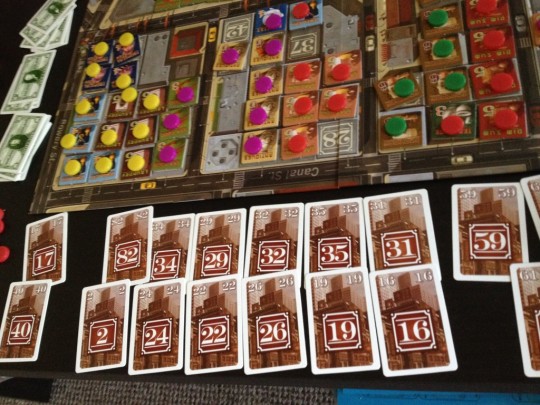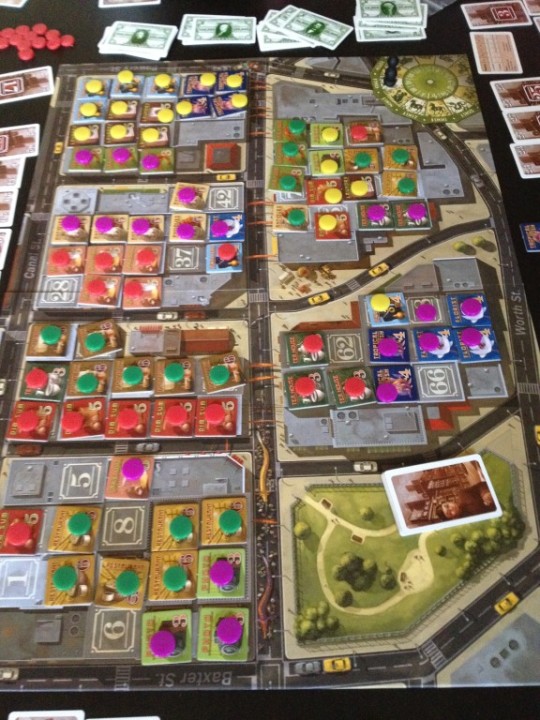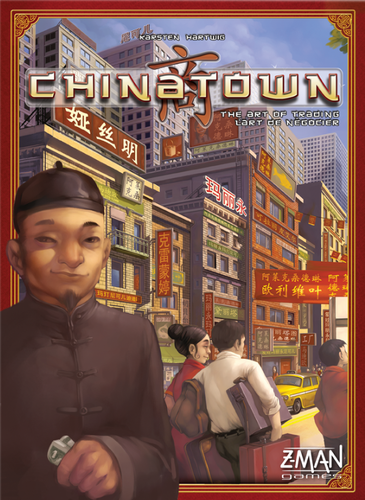Chinatown brings Negotiation and Set Collection…
…and Bingo?
This is a negotiation game in the truest sense of the word. In it, players acquire ownership of sections of city blocks then place tiles, representing businesses, onto the block-sections. At the end of each turn, each tile you’ve laid gives you some sort of payout, but completed businesses (formed of three to six connected tiles of the same type) pay quite a bit better. All these resources are dealt to the players randomly, however, so players must trade to get matching businesses and adjacent locations.
Chinatown is an easy one…
Draw X cards (depending on round/player number) and keep some of them. Everyone reveals. These cards relate to vacant properties on the board so you place a counter of your colour to show you own it…. for now.
You draw X tiles, each showing a type of business.
You negotiate to trade these cards/tiles with other players.
Then, place the tiles you have if you want to.
That’s a round…

The goal is to get properties orthogonally adjacent to each other so you can make runs of the same business type.
At the end of the round you score for each run of a business you have, with a bonus if you have completed a full set of any one type of business.
Some business types only require 3 tiles, some 6 with the latter obviously worth more each round.
So, for example, a PhotoShop requires 3 adjacent tiles. 1 gets you $10k, 2 $20k and 3 (complete) is $50k. Those that need 5 or 6 get you $150k+ so it’s hard work, but worth it.
After 6 rounds, most money wins.
Chinatown Summary
So draw/keep cards, place counters, pick tiles, negotiate, place tiles, and score. Repeat x6.
It’s all about the negotiating part but there are some things you can do outside of it.

When drawing cards, you’re looking for ones that have value to you. Those that are next to your existing spaces to build on, or those that your opponents are going to want.
Drawing the tiles felt a little too random as it was hard to know what was coming out and who would get it. But still, this is where the negotiation part comes in.
Another question is do you place a business on a space for the $10k every round? or hold onto it and hope you can get 1-2 more later on? I placed a single tile on its own and it got me the $10k every round… Later on, I got 3 more of that business but never got any adjacent property… So maybe a waste? Maybe I should have waited.
I’m terrible at this kind of game, but Chinatown was good fun 🙂
Jesta ThaRogue



Leave a Reply